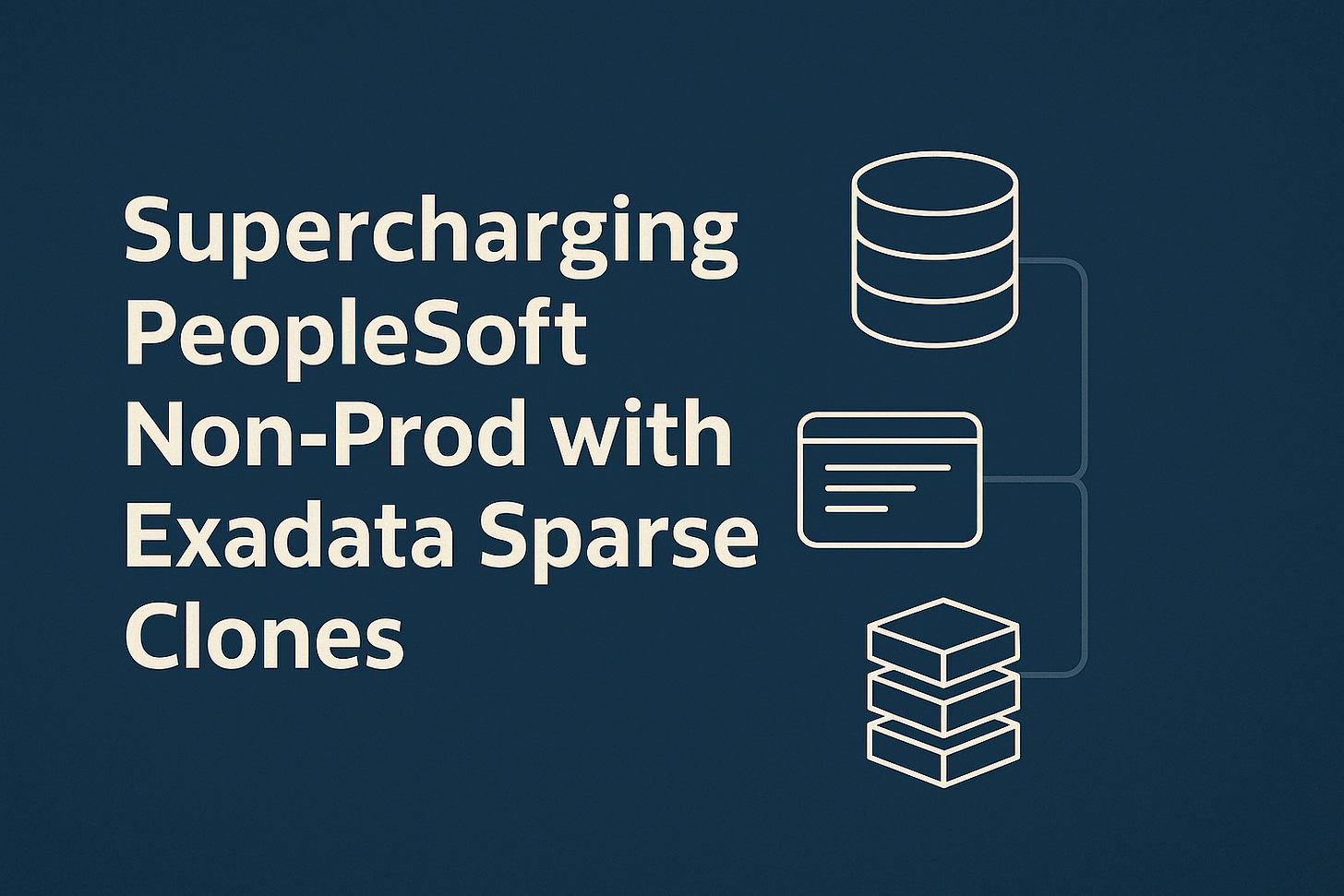Supercharging PeopleSoft Non-Prod with Exadata Sparse Clones
Part 1: Why Non-Prod Matters in PeopleSoft
When we discuss PeopleSoft, production typically receives the most attention. That’s the environment keeping payroll running, students registered, and financials reconciled. But if you’ve ever supported PeopleSoft at scale, you know the real story: non-production environments are the heartbeat of continuous change.
Think about it. Dev, QA, UAT, Training, Integration, Sandboxes — the list goes on. Each of these environments exists to keep production safe. Developers require a dedicated space to code and test customizations. Functional teams need to validate tax updates and regulatory patches. Trainers need realistic data for workshops. And project teams need a safe space to break things without breaking the business.
The problem?
Non-prod environments are massive resource hogs. A single Campus Solutions or HCM database can easily run into multiple terabytes. Multiply that across Dev, QA, UAT, and Training, and you’re looking at tens of terabytes of duplicated data. And that’s without considering the time and effort it takes to refresh each one. I’ve seen environment refreshes take days, sometimes weeks, and still leave teams frustrated because they’re already out of sync with production again.
This sprawl creates a tension every IT leader knows too well:
Do you cut corners and limit the number of non-prod environments, forcing teams to share?
Or do you spin up every environment the business wants and blow through your storage budget?
Neither option is great. The truth is, non-prod is where agility either thrives or dies. If you can’t provide teams with fast, fresh, and reliable environments, your entire PeopleSoft delivery pipeline slows down. That’s why rethinking how we build and manage these environments matters so much.
In this series, I will walk you through how Exadata sparse clones can change the game for PeopleSoft non-production environments. We’ll look at what they are, how they work, and why they’re uniquely powerful for ERP workloads. But more importantly, we’ll tie the technology back to what really matters: enabling faster testing, more frequent refreshes, and lower costs in your PeopleSoft landscape.
Because at the end of the day, non-prod isn’t just “nice to have.” It’s the foundation of a reliable, agile PeopleSoft operation. And sparse clones might be the key to making it work smarter.



